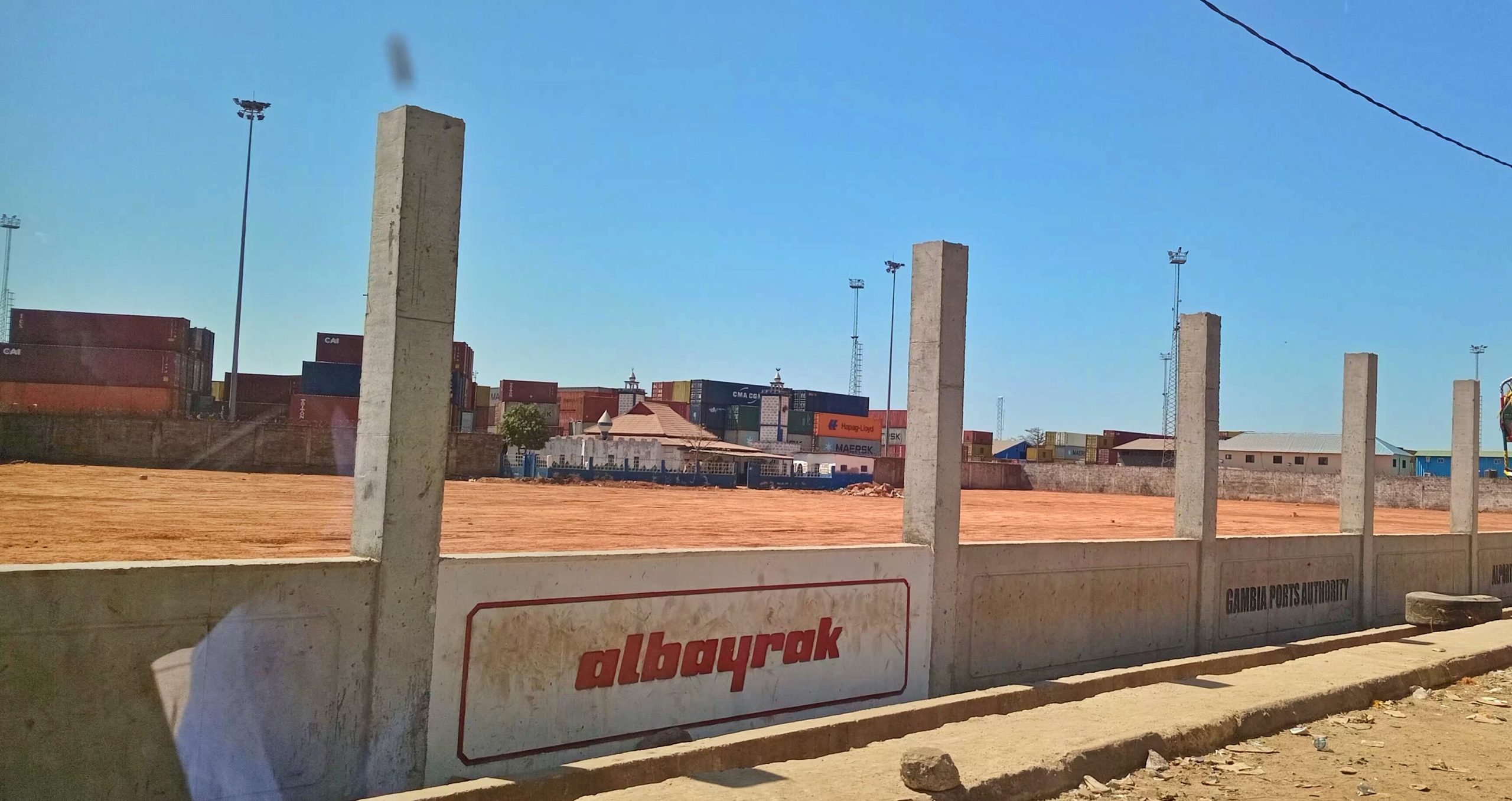Gambiaj.com – (BANJUL, The Gambia) – The Managing Director of the Gambia Ports Authority (GPA), Ousman Jorbateh, has addressed two major concerns surrounding the ongoing concession of the Port of Banjul to the Turkish company Albayrak, the grievances of dockworkers over reduced earnings and the controversy regarding access to the historic Half Die Mosque in Banjul.
The GPA’s concession agreement with Albayrak Group, signed in July 2024, handed the Turkish company operational management of key port facilities, including container handling and terminal operations.
The deal was promoted as a major step toward modernizing the Port of Banjul and improving efficiency through private sector investment.
However, it has since drawn controversy over issues of transparency, labor rights, and the scope of Albayrak’s control over port assets.
Speaking in an interview on West Coast Radio’s Coffee Time With Peter Gomez, Mr. Jorbateh acknowledged that the dockworkers’ complaints stemmed from a substantial drop in their net earnings following the implementation of a new Service Level Agreement (SLA) between Albayrak’s subsidiary Alport, the Dock Labour Company, and the GPA.
“Before the SLA, dockworkers were earning higher wages. The analysis done by Alport revealed that administrative costs, including staff salaries, training, insurance, and welfare, accounted for about 44 percent of total revenue, a figure that exceeded the acceptable 35 percent threshold for efficiency,” the GPA boss explained.
He noted that the cost per container move was initially pegged at $1,155, but following the agreement’s enforcement, dockworkers saw their earnings decline by up to 40 percent, prompting widespread dissatisfaction.
“Previously, dockworkers earned based on container size, 20-foot or 40-foot, but the new system introduced a flat rate per move. As a result, those who used to earn about D38,000 after an operation were reduced to about D26,000,” Jorbateh said.
In response to the backlash, he said the GPA re-engaged Albayrak to review the figures. “We have now agreed on a move rate of $1,400, which will restore dockworkers’ previous earnings,” he confirmed. “This decision ensures fairness while maintaining financial sustainability.”
Jorbateh emphasized that the ongoing transition under the concession is a “brownfield project,” meaning it was expected to face such challenges. However, he described the dialogue with dockworkers as “fruitful” and assured that a solution beneficial to all parties is being finalized.
The Half Die Mosque ‘Is Not Going Anywhere’
Turning to the issue of the Half Die Mosque, which the local community fears might lose public access due to port expansion, the GPA MD reaffirmed that both the mosque and its accessibility are protected under a 1993 government decision.
“The mosque is not going anywhere. What we are working on is ensuring that the public retains access to it without interfering with port operations,” he said.
Jorbateh explained that while the community initially preferred access through Lehman Street, spatial constraints and terminal layout make that option impractical. Instead, the most feasible route would be through Buckle Street and the former Brown Street, which would be fenced and designated as a public access corridor.
“The idea is to provide access that doesn’t require going through port security or operational areas. It will be a dedicated route for the public,” he said, adding that the final decision will be made in consultation with the community.
He further stressed that access should accommodate vehicles, not just pedestrians, noting that the mosque is frequently used for large gatherings and religious events such as Gamo nights.
“Government positions and citizens’ rights must be respected,” he said firmly. “The concession is meant to add value, not create unnecessary problems or deprive people of their comfort.”
This week, a leaked letter from the GPA Managing Director to Albayrak raised concerns over alleged violations of the concession terms, prompting intense debate about the company’s adherence to contractual obligations and the government’s oversight of strategic national assets such as the Port of Banjul.










